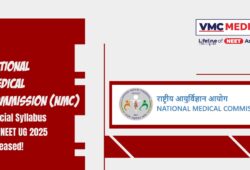Medical Council Approves Establishment of 113 New Undergraduate Colleges
 Posted On
Posted On
260 total views, 2 views today
In a groundbreaking move poised to reshape India’s healthcare landscape, the National Medical Commission (NMC) has approved the establishment of 113 new undergraduate medical colleges for the academic year 2024-25. This strategic initiative marks a significant expansion in MBBS seats nationwide, addressing the pressing need for more healthcare professionals and ensuring greater access to quality medical education.
The announcement follows an earlier call by the Medical Assessment and Rating Board (MARB), inviting applications for new UG medical colleges, underscoring the commission’s proactive approach towards enhancing medical education infrastructure. The NMC’s recent public notice on July 6 informed the relevant institutions directly via email, marking the beginning of a transformative phase for medical education in India.
Meeting the Demand for Healthcare Professionals
The approval of these new medical colleges is expected to greatly benefit aspiring medical students across the country. By increasing the number of MBBS seats, the NMC aims not only to meet the growing demand for healthcare professionals but also to bolster the overall healthcare delivery system. This move aligns with the commission’s mandate to ensure equitable access to healthcare and promote universal health coverage, with a strong emphasis on community health and medical research.
A Look at the Approved Institutions
Among the notable institutions approved are the Delhi Institute of Medical Sciences in Najafgarh, the Autonomous State Medical College in Kushinagar, Uttar Pradesh, and the Bharat Medical College & Hospital in Purulia. These institutions, spread across various states, are set to play a pivotal role in shaping the next generation of medical professionals, equipped to meet the diverse healthcare challenges of the 21st century.
The Role of National Medical Commission
The formation of the National Medical Commission under the National Medical Commission Act, 2019, reflects a comprehensive legislative effort aimed at transforming medical education and practice in India. The commission’s objectives include ensuring the availability of competent medical professionals, promoting ethical standards in medical practice, and fostering a conducive environment for cutting-edge medical research.
Empowering Institutions for Excellence
Each approved institution is tasked with adhering to rigorous standards set by the NMC, ensuring that they meet the benchmarks for quality medical education and infrastructure. This includes maintaining a robust faculty, implementing modern teaching methodologies, and fostering an environment conducive to holistic development of medical students.
A Catalyst for Regional Development
Beyond addressing the shortage of healthcare professionals, the establishment of these medical colleges is expected to stimulate economic growth and development in their respective regions. By creating employment opportunities and attracting investments in healthcare infrastructure, these institutions will contribute significantly to local and regional prosperity.
Future Prospects and Challenges
While the approval of 113 new medical colleges marks a monumental stride, challenges such as ensuring sustainable growth, maintaining quality standards, and addressing regional disparities in healthcare infrastructure remain pertinent. The NMC’s role in continuously monitoring and evaluating these institutions will be crucial in safeguarding the integrity and effectiveness of medical education across the country.
Closing Thoughts
In conclusion, the NMC’s decision to approve 113 new undergraduate medical colleges represents a transformative step towards enhancing medical education accessibility and quality in India. This ambitious initiative not only addresses the critical shortage of healthcare professionals but also underscores the commission’s commitment to fostering excellence in medical education and practice. As these institutions prepare to welcome their inaugural batches of students, they herald a new chapter in India’s healthcare journey—one that promises to elevate standards, expand opportunities, and ultimately improve healthcare outcomes for all citizens.
Through strategic partnerships, innovative practices, and a steadfast commitment to excellence, the NMC and the newly approved medical colleges are poised to redefine healthcare education in India, ensuring a healthier and more prosperous future for generations to come.




